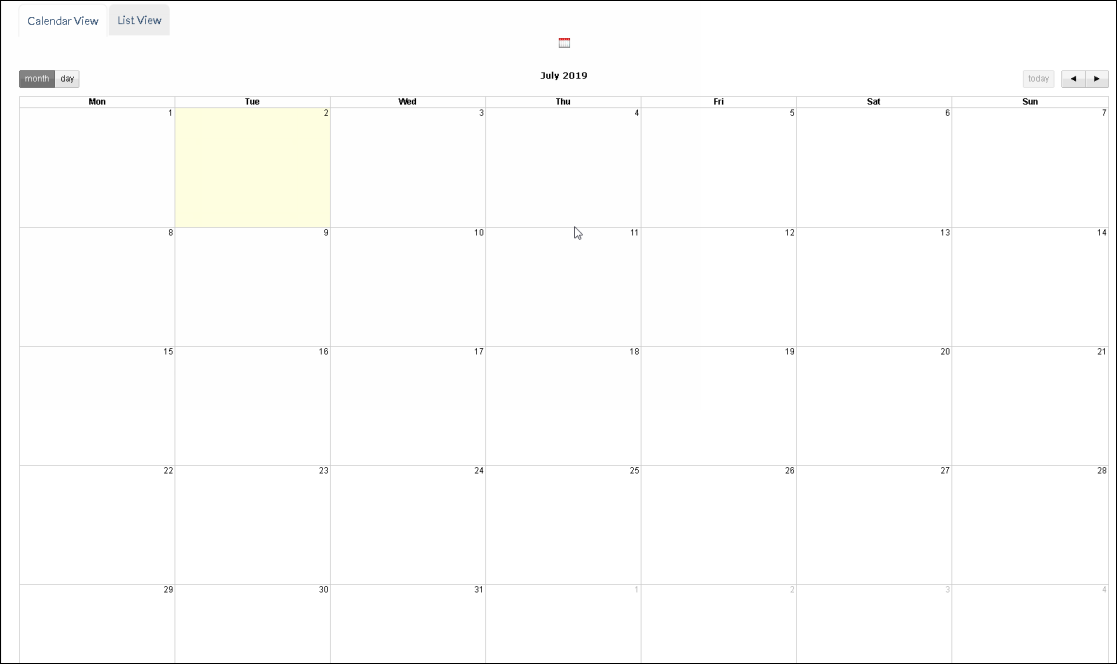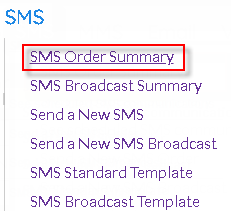Overview
The 'SMS: Order Summary' page is the central hub for viewing and editing 'Standard' SMS and 'Broadcast' SMS (WebSMS+ license required for 'Broadcast').
|
Click the 'SMS' tab at the top of the interface to open the WebSMS(+) menu.
Click 'SMS' to open the 'SMS Order Summary' screen, the main hub for sending messages. |
Description
|
Create a new 'Standard' SMS order.
|
|
Choose a template to use as the starting point for your message (if any have been saved), otherwise leave as 'New From Template' to start fresh.
When
|
|
click here to read about SMS Preference Details |
Click this button to access and configure SMS Preference Details |

Use the ![]() icon to expand or collapse the search filters.
icon to expand or collapse the search filters.
Order summary table
|
The most recent orders that you save, schedule, or send are displayed in these tables. Click an order name to view its details or one of the following icons:
|
Change details
|
|
Opens an identical copy, which you can edit as necessary and re-use.
|
|
Remove permanently from the system
|
|
Launch a saved message.
|
Calender View
|
|
The Calender View tab allows users to view all their Voice Orders in a chronological orders. This is a feature that makes it easier to view all Orders from a top-down approach.
Users can use the
To view Orders as days and months Users can use the
Day View:
 Day View The default page for Calender View shows the "day" view. This shows the complete set of Pending and completed Orders on a particular date. The default day is "today". Users use the
Month View:
 Month View
Individual Orders are displayed within each date box. Users can click on each Order to view further details on them. Users can click on individual Order items inside the calenders to view details on the same.
Key Features :
•Under the 'Channel Broadcast Summary' screen, there are options to view the calender item entries based on a week view or daily view. •Standard Orders and Broadcast Orders are displayed based on the dates they will occur or have already occurred. •Certain calender entries may contain multiple entries. If the calender box cannot hold all the entries, there are limited number of entries ('x' number of entries). When users click on the 'x' they are taken from Month view into a Day view where all orders are listed down. •Users have the freedom to switch between a calender view or list view. •When Calendar view is filtered by Day orders, it must include the "Statistics Overview" chart that is seen in the list view of Order Summary tables. |

